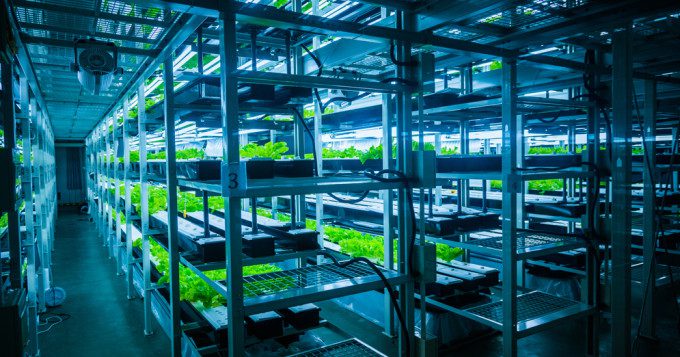Hydroponic farming is missing one very important ingredient, and a whole way of thinking that goes along with it.
Long time supporters of organic food need to realize that the ground is shifting beneath their feet. Rapidly. Ever since the U.S. Department of Agriculture (USDA) was given control of the word in 2000, the integrity of the “USDA Certified Organic” label has been on a downhill slope.
We now have 4,000-cow dairies with very limited access to pasture and 1,000-acre vegetable fields fed fertilizers of suspicious provenance producing food that is called organic. But, even more dismaying, we also now have certified organic hydroponics.
What’s wrong with that?
For starters, there isn’t any soil in hydroponic production. One of the appeals of organic food is that it is grown in a biologically active, fertile soil. That type of soil adds immeasurably to the plants’ nutritional value.
In an ideal farming system, soils are nourished, as in the natural world, with farm-derived organic matter and mineral particles from ground rock. Green manures and cover crops are included within crop rotations to maintain biological diversity. It’s a “plant positive” rather than “pest negative” philosophy, focused on growing vigorous, healthy plants and animals imbued with all their natural powers of resistance.
The original USDA definition of “organic” stressed “soil biological activity” as one of the processes enhanced by organic practices. But to many farmers’ dismay, the agency rewrote that definition in 2002 to remove any reference to the word soil.
Then, in 2010, the National Organic Standards Board (NOSB), the group of farmers, scientists, and public interest advocates in charge of recommending changes to the organic standards, strenuously objected to the inclusion of soil-free farming in the standards. In their recommendation, they wrote:
The abundance of organisms in healthy, organically maintained soils form a biological network, an amazing and diverse ecology that is ‘the secret,’ the foundation of the success of organic farming accomplished without the need for synthetic insecticides, nematicides, fumigants, etc.
Despite this objection, Miles McEvoy, the director of the National Organic Program (NOP), has unilaterally allowed organic hydroponics. And many of the organic certifying agencies have jumped right on the bandwagon and started certifying hydroponic operations.
via Why You Can’t Have Organic Food Without Soil | Civil Eats.

